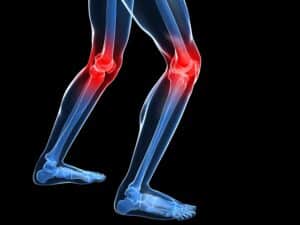 Rheumatoid arthritis, commonly referred to as RA, is an inflammatory condition caused by an autoimmune disorder. The immune systems of people with RA mistakenly attacks healthy tissues, most notably those in the joints. However, some people with RA experience damage to other systems, such as the lungs, eyes, skin, and heart. People of any age can develop RA, so knowing the signs can help you to identify it in your aging parent. Below are 5 early signs of the disease.
Rheumatoid arthritis, commonly referred to as RA, is an inflammatory condition caused by an autoimmune disorder. The immune systems of people with RA mistakenly attacks healthy tissues, most notably those in the joints. However, some people with RA experience damage to other systems, such as the lungs, eyes, skin, and heart. People of any age can develop RA, so knowing the signs can help you to identify it in your aging parent. Below are 5 early signs of the disease.
#1: Joint Pain and Stiffness
Most people with RA experience pain and stiffness in their joints. Stiffness happens more often in the morning and may persist for several hours after your parent gets up. Joints may also swell and feel warm to the touch. Joints may also lose some range of motion, meaning they don’t move the way they once did. Joint symptoms most often start in the hands. However, they can occur in any joint of the body.
#2: Fatigue
People with RA may feel very tired when the disease first starts, even before they have any joint pain or stiffness. The fatigue can impact their ability to complete normal activities and may also affect personal relationships since your parent may feel too tired to spend time with friends and family.
#3: Numbness and Tingling
Your parent might feel tingling in their hands and feet. This is probably caused by swelling inside the joint that places pressure on nerves, interrupting normal passage of signals.
#4: Low-Grade Fever
The inflammation caused by RA can cause your parent to feel generally unwell and run a low-grade fever. Often, the fever is accompanied by fatigue.
#5: Weight Loss
A person with RA might lose weight without trying to. The weight loss could be due to feeling feverish and unwell, which can cause a lack of appetite.
If your parent does have RA, elderly care can assist them to manage the disease and live more comfortably. An elderly care provider can assist with making lifestyle changes that can help to improve the symptoms of the disease, such as by preparing healthy meals and encouraging the senior to be more physically active. In addition, an elderly care provider can remind your parent when it is time for them to take medications. Consistently taking medications is an important part of disease management. And, when your parent needs to rest because of joint pain or other symptoms, the elderly care provider can take on household tasks like cleaning and cooking.
Sources
https://www.mayoclinic.org/diseases-conditions/rheumatoid-arthritis/symptoms-causes/syc-20353648
https://www.webmd.com/rheumatoid-arthritis/rheumatoid-arthritis-symptoms#1
https://www.medicalnewstoday.com/articles/319810.php#early-signs-of-rheumatoid-arthritis
https://www.mayoclinic.org/diseases-conditions/rheumatoid-arthritis/diagnosis-treatment/drc-20353653
If you are considering elderly care in Memorial, TX, for an aging loved one, please call the caring staff at At Your Side Home Care. We will answer all of your senior care questions. Call today: (832) 271-1600.
Our Certified Nurse Aides, 24-Hour Live-in Assistants and Home Health Aides are available 24 hours a day, 365 days a year. We also provide the security and confidence of 24-hour Telephone Assistance, so fast, reliable help is always available when it's needed. To learn more about our homecare services see our homecare services page.
Different people need different levels of homecare. To meet the requirements of our clients, At Your Side Homecare maintains consistent staffing levels of caring professionals. Homecare service is available for as little as a few hours a week, or as many as 24 hours a day, seven days a week
- 5 Signs a Senior Might Be in the Beginning Stages of Dementia - April 25, 2025
- What Solutions Can Help Seniors with Mental Health Challenges? - April 18, 2025
- How Does Senior Home Care Help Make Aging in Place Possible? - April 11, 2025



